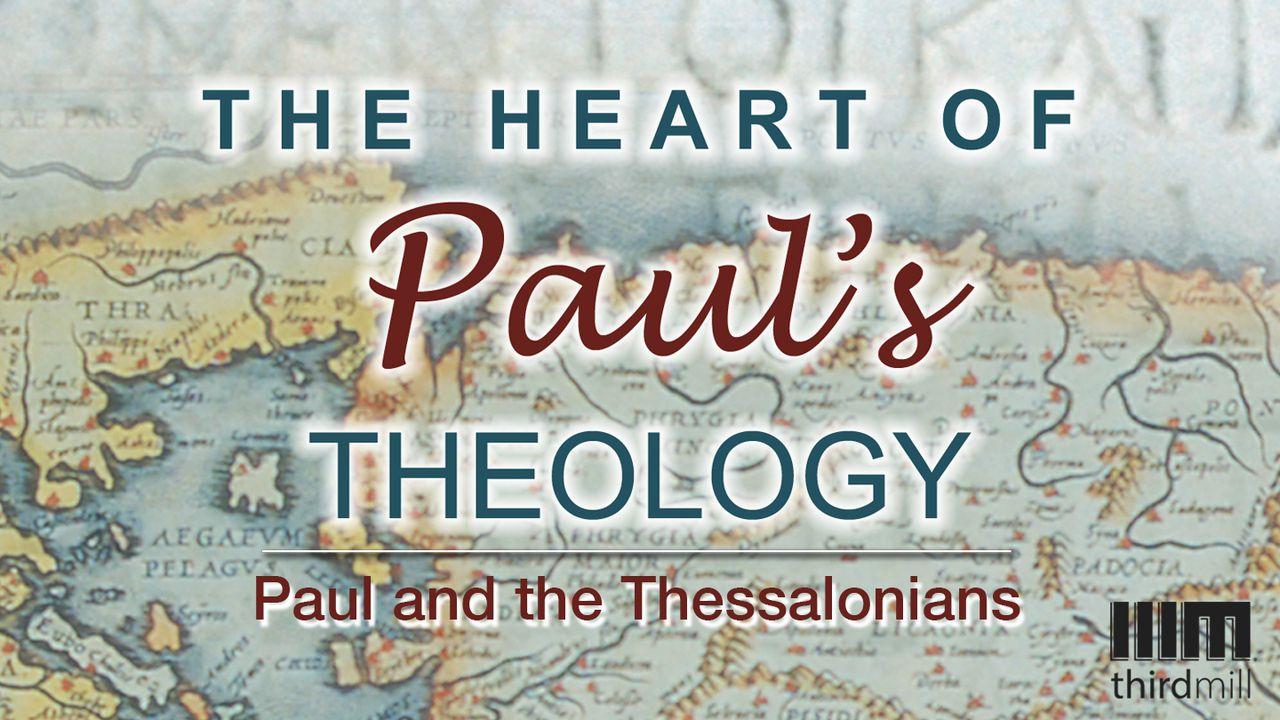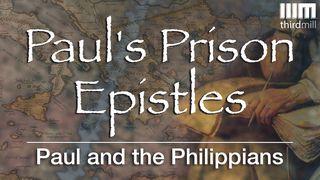The Heart Of Paul’s Theology: Paul And The ThessaloniansSample

Pauline Ethics: 1 Thessalonians 3:13
Paul countered the overheated eschatology in Thessalonica not only by emphasizing the past and present aspects of salvation, but also by stressing ethical Christian living. To see how his ethical teaching reflected his eschatology, we will look at two topics: the process of salvation, and the implication to live ethically. Let’s look first at the way Paul’s eschatology demonstrated a progression from past and present dimensions of salvation to future blessings.
Paul wrote that the Thessalonians were sanctified and believed the truth in order that they might “obtain the glory of our Lord Jesus Christ.” Paul expressed a similar idea in his prayer in 1 Thessalonians 3:13:
May [the Lord] strengthen your hearts to be blameless in holiness in the presence of our God and Father at the coming of our Lord Jesus with all his holy ones (1 Thessalonians 3:13).
The Thessalonians yearned for Christ’s return with all his holy ones, and Paul affirmed this desire. But he also prayed that they would be strengthened in their daily commitment to Christ so that when Christ did return, the Thessalonians would be found acceptable in his sight. Future salvation in eternal glory is the end or goal of a process. God designed our past and present experiences of salvation to lead to the future stage of salvation. And without the past and present stages, future salvation cannot be reached.
In describing the past, present and future aspects of salvation, Paul indicated that one necessary step in that process was day-to-day ethical living. In short, he wrote that professing believers who do not live righteously cannot complete the process, because they have never really begun it. By pressing this point, Paul reminded the Thessalonians that, although they were right to hope for the blessings of Christ’s return, they also needed to concentrate on the present circumstances of their lives if they hoped to receive those future blessings.
Consider the way Paul exhorted them in 1 Thessalonians 5:5-9:
You are all sons of light and sons of day. We are not of night or darkness. Therefore, let us not sleep like the others, but let us be alert and sober. For those who sleep, sleep at night, and those who get drunk get drunk at night. But we are of the day, so let us be sober, having put on faith and love as a breastplate, and the hope of salvation as a helmet. For God did not appoint us to suffer his wrath, but to obtain salvation through our Lord Jesus Christ (1 Thessalonians 5:5-9).
Paul’s basic threefold view of salvation appears again in this passage. In the past, the Thessalonians had become “sons of light and sons of day.” They had already received this special status in the eyes of God, and they had become faithful, loving and hopeful of salvation. Because they had experienced salvation in the past, Paul insisted that they had an obligation to continue in salvation in the present: “let us be alert and sober.” And beyond this, Paul stated that the reason Christians must remain alert and sober, steadfast in faith, hope and love, is that our future salvation depends upon it. God has not appointed us to suffer his wrath, but to receive salvation. But he has also appointed our present faithfulness as the means to obtaining our future salvation.
Scripture
About this Plan

This reading plan investigates the background to Paul's letters to the Thessalonians, examines the structure and content of First and Second Thessalonians, and reveals his eschatology.
More
We would like to thank Third Millennium Ministries for providing this plan. For more information, please visit:
http://thirdmill.org
Related Plans

Paul's Prison Epistles: Paul And The Philippians

Faith Amongst Grasshopper Hearts

The Book of Hebrews

Unshaken: 7 Days to Find Peace in the Middle of Anxiety

Called Out: Living the Mission

More Than Money: A Devotional for Faith-Driven Impact Investors

Living With Power

Mission Trip to Campus - Make Your College Years Count

Daughter, Arise: A 5-Day Devotional Journey to Identity, Confidence & Purpose
